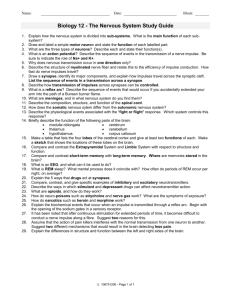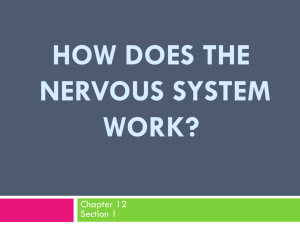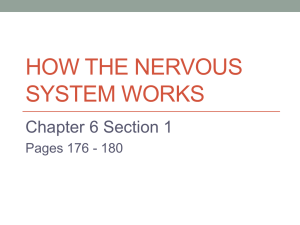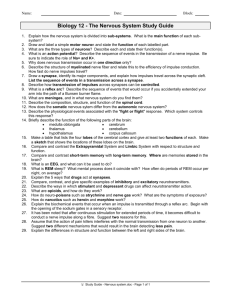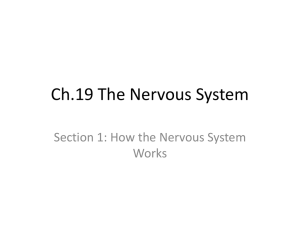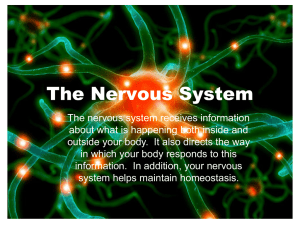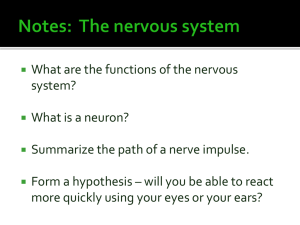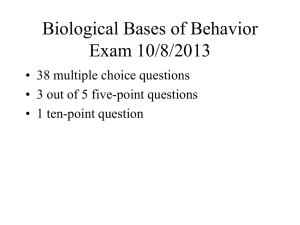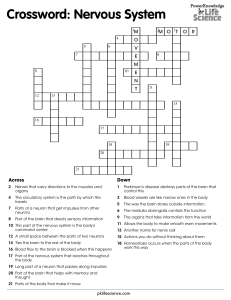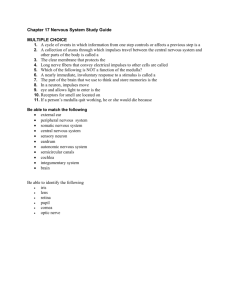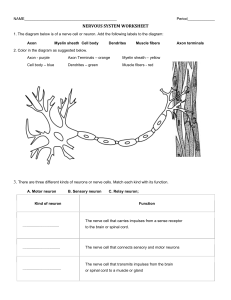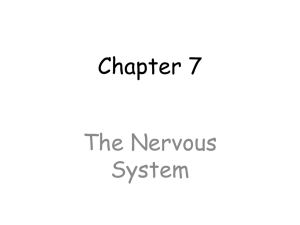axons
advertisement
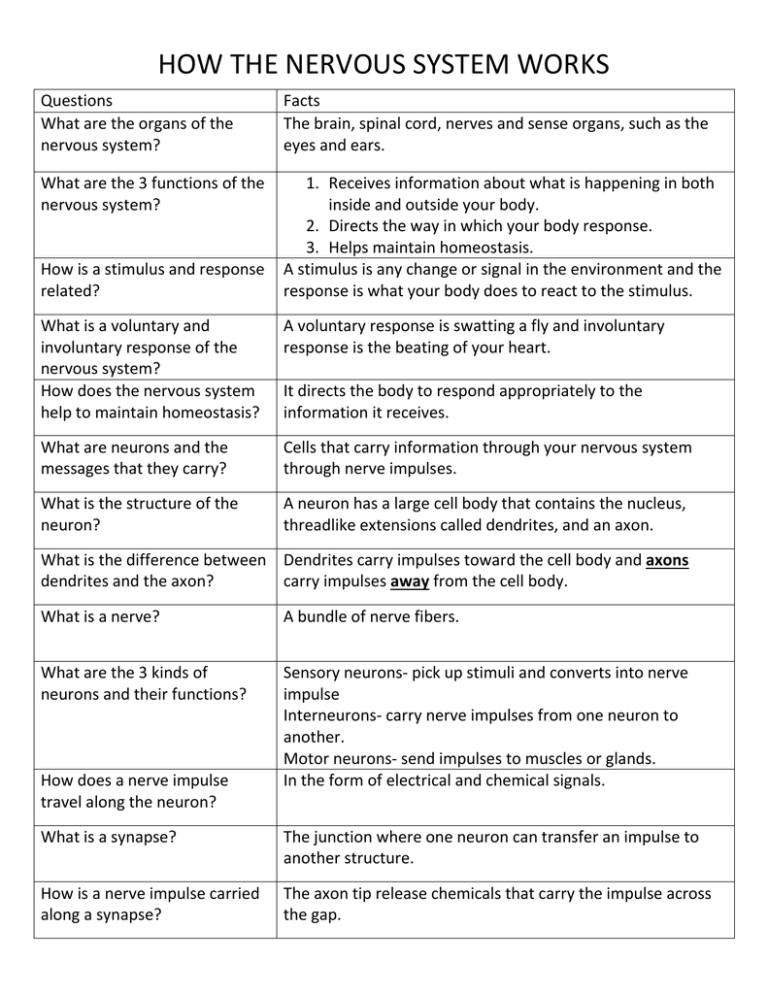
HOW THE NERVOUS SYSTEM WORKS Questions What are the organs of the nervous system? Facts The brain, spinal cord, nerves and sense organs, such as the eyes and ears. What are the 3 functions of the nervous system? 1. Receives information about what is happening in both inside and outside your body. 2. Directs the way in which your body response. 3. Helps maintain homeostasis. A stimulus is any change or signal in the environment and the response is what your body does to react to the stimulus. How is a stimulus and response related? What is a voluntary and involuntary response of the nervous system? How does the nervous system help to maintain homeostasis? A voluntary response is swatting a fly and involuntary response is the beating of your heart. What are neurons and the messages that they carry? Cells that carry information through your nervous system through nerve impulses. What is the structure of the neuron? A neuron has a large cell body that contains the nucleus, threadlike extensions called dendrites, and an axon. It directs the body to respond appropriately to the information it receives. What is the difference between Dendrites carry impulses toward the cell body and axons dendrites and the axon? carry impulses away from the cell body. What is a nerve? A bundle of nerve fibers. What are the 3 kinds of neurons and their functions? Sensory neurons- pick up stimuli and converts into nerve impulse Interneurons- carry nerve impulses from one neuron to another. Motor neurons- send impulses to muscles or glands. In the form of electrical and chemical signals. How does a nerve impulse travel along the neuron? What is a synapse? The junction where one neuron can transfer an impulse to another structure. How is a nerve impulse carried along a synapse? The axon tip release chemicals that carry the impulse across the gap.
